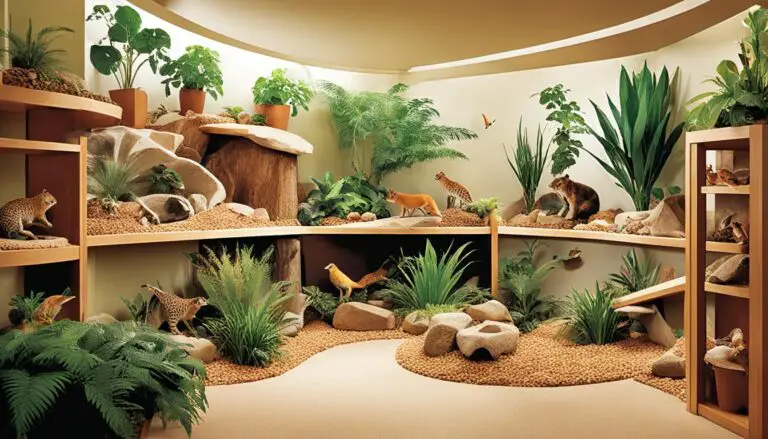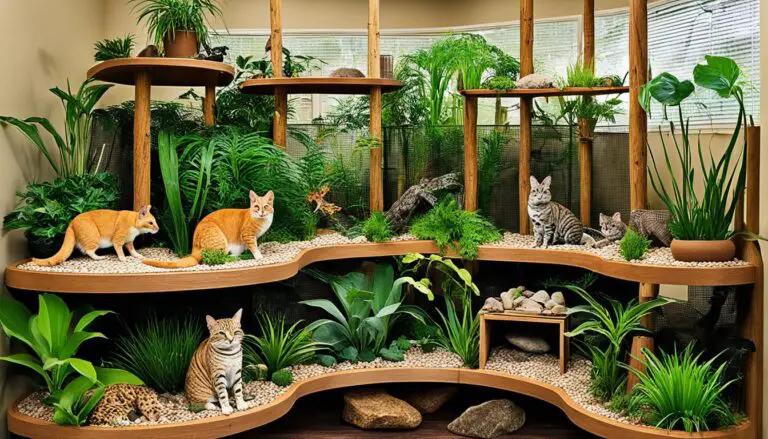Exotic Pet Housing Water Dishes: Guide, Tips & Essentials
When you have exotic pets, their home and water dishes need special attention. Choose the right kind of enclosures and water dishes. This makes sure they’re comfy and safe.
- Exotic pets require specific housing requirements, including proper ventilation and hiding areas for security.
- Choosing the right water dish for exotic pets involves considering size, material, and special features.
- Feeding exotic pets a balanced diet and maintaining a clean habitat are essential for their well-being.
- Proper handling techniques and socialization help exotic pets thrive.
- Regular veterinary care and understanding long-term commitment are crucial for exotic pet health and lifespan.
Exotic Pet Housing Requirements
Exotic pets need special homes to stay healthy and happy. It’s crucial to give them the right space for a good life. Here’s what to think about when setting up their home:
- Size and Space: The home must have plenty of room for them to move and play. This helps them get exercise and not get bored.
- Quality and Material: Choose a home with a solid or partly solid bottom. This prevents any harm to their feet and gives them comfort.
- Cool and Well-Ventilated Area: Keep their home in a cool place with good air flow. It keeps them comfortable and healthy.
- Litterbox: Put a litterbox in their space for cleanliness. It makes their home tidy and smells better.
- Hide Areas: Add places like caves or tunnels for them to hide. It makes them feel safe and relaxed.
- Enrichment Items: Use toys and tunnels to keep their minds active. It stops them from getting bored.
Quote:
“It’s key to make a good home for your exotic pet for their health and well-being. A cool, airy space with a safe, comfy bottom makes their habitat perfect.”
Every exotic pet has different needs. Learn about them and ask experts or vets for advice to make sure you’re doing it right. A good, fun home leads to a joyful and lively exotic pet.
| Exotic Pet Housing Requirements | Features |
|---|---|
| Cage Size and Space | Spacious enough for comfortable movement |
| Quality and Material | Solid cage bottom to prevent pressure sores |
| Cool and Well-Ventilated Area | Maintain suitable temperature |
| Litterbox | Efficient waste management |
| Hide Areas | Provide sense of security |
| Enrichment Items | Stimulate mental activity |
Choosing the Right Water Dish for Exotic Pets
Choosing the right water dish for your exotic pet is very important. It helps keep them healthy and gives them fresh, clean water. The choice you make affects their well-being.
First, think about the size of the water dish. It needs to match your pet’s size. Too small, and you’re refilling all day. Too big, and the water might get dirty. It’s important to find a just-right size.
Then, consider what the dish is made of. Good choices are stainless steel or ceramic. They’re safe and last a long time. Try to avoid plastic as it can hold bacteria and wear out.

Some dishes have special features. Look for ones that won’t slip or tip over easily. This is great for pets that play with their water dishes. Spill-proof designs are also smart for splashy pets.
Doing research can help you choose. Look up top-rated water dishes and read reviews from other pet owners. Their experiences can guide you to the best dish.
Easy cleaning is key. Choose a dish that’s simple to take apart and wash. This keeps the dish clean and safe for your pet.
The right water dish is very important for your pet’s home. Make sure it’s the right size, material, and has helpful features. Always ask pet experts for advice to find the best dish for your pet.
Tips for Feeding Exotic Pets
Feeding exotic pets needs careful thought about their food. A balanced diet is key for their health and happiness. Here are tips to get your exotic pet’s diet right:
Diversify their Diet
An exotic pet’s diet should be varied. Include hay, pellets, fresh greens, and sometimes fruits in their meals. Hay gives them essential fiber. Pellets are packed with vitamins and minerals. Greens and fruits add more nutrients and fun.
Research Specific Dietary Requirements
Every exotic pet has its own food needs. It’s vital to learn what your pet specifically needs. Some might need more protein or certain vitamins. Others might need certain fruits or veggies. Talking to experts or exotic pet vets can help you feed your pet right.
Offer Fresh Water
Always give your exotic pet fresh water. Use a spill-proof bowl or a special water bottle. This depends on what your pet likes and needs.
Monitor Portion Sizes
Like all pets, exotic pets need the right amount of food. Too much food can make them overweight and unhealthy. Stick to the portion sizes recommended by experts or vets. Change it up depending on how active your pet is and their health.
Supplement with Vitamins
Some exotic pets might need extra vitamins. This helps if their regular diet doesn’t give them all they need. Talk to experts or vets to see if your pet needs more vitamins and how much they should get.
By following these tips and giving a well-balanced diet, your exotic pet will stay healthy and joyful. Always ask experts or vets if you’re unsure about what to feed your pet or how much.

Maintaining a Clean and Safe Habitat
Keeping your exotic pet’s enclosure clean is key to a safe home for them. A consistent cleaning routine helps maintain their health. It also stops bacteria or parasites from spreading.
Daily waste removal is important to keep the area clean. This means getting rid of feces, urine, or dirty bedding. Doing this will control odors and cut down infection risks.
Cleaning Frequency
Next to daily cleaning, do a deep clean of the enclosure every week. Clean all surfaces, accessories, and toys. This gets rid of harmful bacteria and keeps your pet’s home hygienic.
Safe Cleaning Solutions
Use safe cleaners for your pet’s home. Hot soapy water works well for regular cleaning. A diluted bleach solution is good for disinfecting, but rinse well afterwards.
Choose pet-safe cleaning products. Steer clear of strong chemicals or toxic cleaners. Always read product labels and follow what they say.
“Regular cleaning of the exotic pet enclosure is crucial to maintain a clean and safe habitat for your pet.”
Cleaning Tips
- Remove your pet from the enclosure before starting to clean. This keeps them safe.
- Take apart any accessories that can be removed and clean each piece separately.
- Rinse everything well so no cleaning residue is left.
- Let the enclosure dry completely before putting your pet back in.
By adhering to these cleaning methods, you ensure a clean, safe environment for your exotic pet. This supports their health and happiness.

Handling and Socialization
Gentle techniques are key for the safety of exotic pets. Do not lift them by their ears. Support their chest and hindquarters gently to avoid injuries.
But it’s not all about handling. Socializing and playing are also crucial. They keep your pet happy and mentally sharp. Include playtime outside their cages with various toys and activities.
Socialization helps your pet get along with humans and other animals. This leads to less stress and more friendly behavior. Positive interactions are encouraged through this.
“The bond created through handling and socialization is crucial for the overall quality of life of exotic pets. It helps build trust, minimize anxiety, and foster a positive environment for these unique companions.” – Dr. Sarah Johnson, Exotic Pet Specialist
Make playtime fun with activities that match their natural instincts. Offer puzzle toys, tunnels, and games that get them moving. These activities fight off boredom and keep them fit.
Take things slow when introducing your pet to new experiences or friends. Be patient and consistent. Use positive reinforcement in their training and socializing.
The Benefits of Proper Handling and Socialization
- Establishes trust and strengthens the bond between pet and owner.
- Reduces stress and anxiety in exotic pets.
- Promotes positive behavior and prevents potential aggression.
- Encourages mental stimulation and prevents boredom.
- Fosters a happy and fulfilling life for your exotic pet.
Handling and socializing right means a happier life for your exotic pet. It keeps them healthy and joyful.

Now, let’s look at common health issues in exotic pets and the value of regular vet visits.
Common Health Issues in Exotic Pets
Exotic pets face many health challenges. It’s key to care for them properly. Taking them for regular vet check-ups is vital. This helps keep them healthy and catches any issues early.
Spaying or neutering is important for some exotic pets. It stops diseases linked to reproduction and unwanted offspring. Always talk to a vet about when to do this for your pet.
Hairballs are a common problem too. To prevent them, especially in self-grooming animals, provide proper grooming tools. Also, give them a diet that supports good digestion.
Keeping nails trimmed is critical too. Long nails can hurt your pet and even cause injuries. For the right nail trimming method, ask a vet or a pro groomer. This keeps your pet’s nails short and safe.
Exotic pets also get common illnesses, like tummy trouble and teeth problems. Care for their teeth regularly to avoid dental diseases. Watch their eating, bathroom habits, and how they act. This can show signs of stomach issues.
Focus on caring for your exotic pet. This includes vet visits, spaying/neutering, stopping hairballs, and nail care. Doing these things helps keep your exotic pet healthy and joyful.
Lifespan and Long-Term Commitment
Thinking about getting an exotic pet means understanding their lifespan and commitment. Different pets live for various lengths of time. Knowing if you can care for them their whole life is key.
Exotic pets like reptiles, birds, or small mammals can live many years. For example, turtles or snakes may live for decades. Birds like parrots can live for over 50 years. It’s vital to know if you can care for them their whole life.
Having an exotic pet is a long commitment, not like having a fish. It’s like having a lifelong friend. This decision is big and should be taken seriously.
Letting exotic pets go in the wild is bad because they can harm the environment. They might not survive in their natural homes either. So, if your situation changes, thinking carefully about who to give your pet to is important.
Finding a new good home for your exotic pet is crucial. You can find someone through pet rescue groups or people known to care well for these animals. They should know how to give them the right home and care.
Owning an exotic pet means being ready for a big responsibility. Before you decide, research the pet’s needs and how long they live. Make sure you can give them a loving and healthy life.
Considerations for Exotic Pet Care
Caring for an exotic pet brings unique challenges. You must thoroughly prepare and research to meet their needs. It’s crucial to provide the right environment, diet, and access to specialized vet care.
Before you adopt an exotic pet, learn about their care requirements and the challenges you might face. Being prepared and well-informed will help you give your pet the best care.
Make your exotic pet’s home as close to their natural habitat as possible. Think about the temperature, humidity, lighting, and fresh air. A safe and comfy space is key to their health and happiness.
Exotic pets often need special foods to stay healthy. Do your research and talk to experts to figure out the right diet. Some pets might need unique foods or supplements.
Having access to a vet who knows about exotic pets is very important. Regular check-ups can spot health issues early. This means your pet can get the right treatment quickly.
Owning an exotic pet means facing unique challenges and responsibilities. With the right preparation, research, and vet care, you can create a loving home for your pet.
Key Considerations for Exotic Pet Care:
- Thorough preparation and research
- Providing a suitable environment
- Specialized diet and nutrition
- Access to specialized veterinary care
Conclusion
Providing a good home for your exotic pets is key to their health and happiness. You need the right exotic pet housing and water dishes for their specific needs. Make sure their home is cool, has plenty of air, and many spots to hide. Also, choose top-notch animal enclosure products to create the best space for them.
It’s important to pick water dishes made for exotic pets. This makes sure they always have fresh, clean water. Doing research and reading reviews will help you find the best products out there.
Caring for exotic pets takes careful planning and know-how. Talk to experts or vets for advice tailored to your pet’s needs. Paying attention to your pet’s unique traits and investing in quality care will ensure they lead a joyful, long life.
FAQ
What are the important requirements for housing exotic pets?
How should I choose a water dish for my exotic pet?
What should I feed my exotic pet?
How should I clean my exotic pet’s enclosure?
What are the proper handling techniques for exotic pets?
What are common health issues in exotic pets?
How long do exotic pets typically live, and what is the long-term commitment involved?
What are some considerations for exotic pet care?
Source Links
- http://2ndstreetvet.com/exotic-pet-care/
- https://reptilesupershow.com/essential-reptile-habitat-setup-guide-tips/
- https://www.oakhurstvet.com/blog/the-big-needs-of-small-animals-understanding-the-basics-of-exotic-pet-care/
Peter Stones is the founder of Exotic Pets Place, the leading online resource for exotic pet care information.
With over 10 years of hands-on exotic pet ownership experience, he is deeply passionate about sharing his expertise to help others properly care for their unusual pets.
When he's not writing extensively researched articles or connecting with fellow exotic pet enthusiasts worldwide, you can find Peter at home tending to his own beloved menagerie of exotic animals.

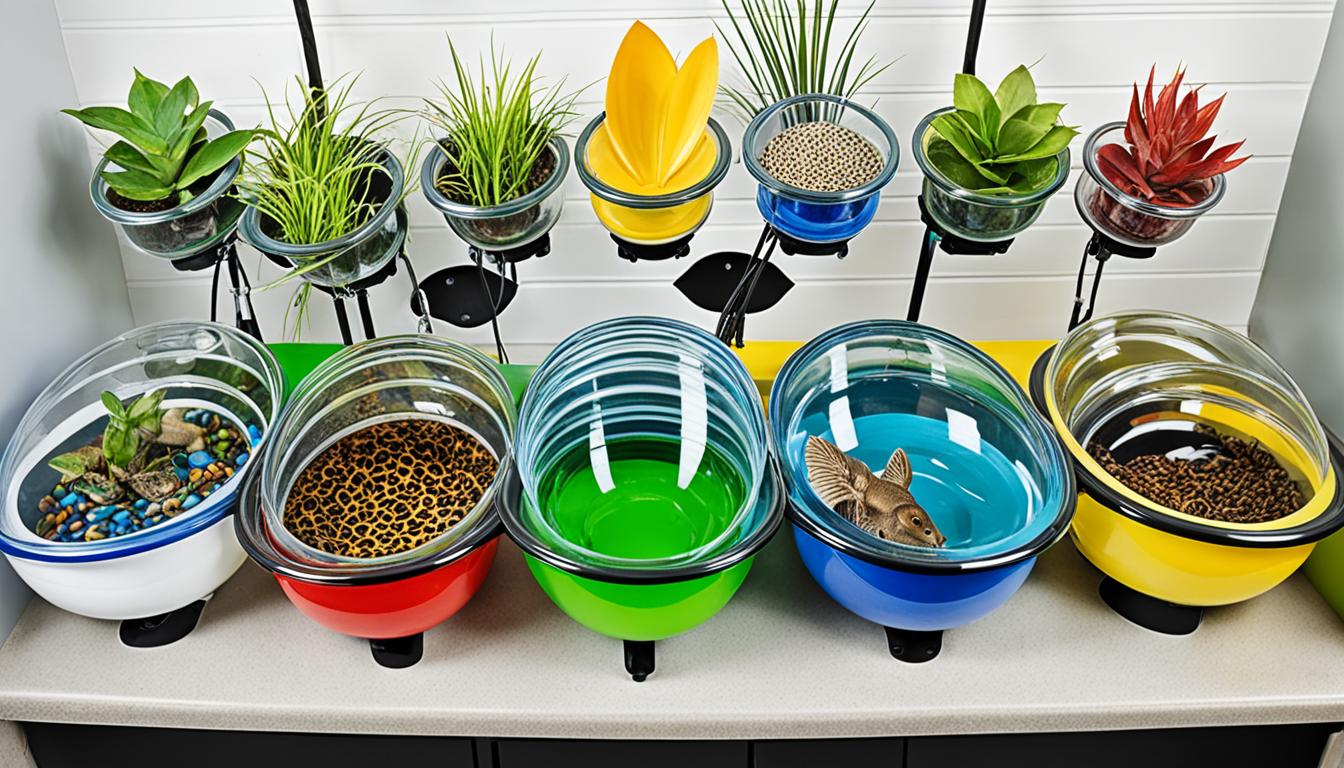
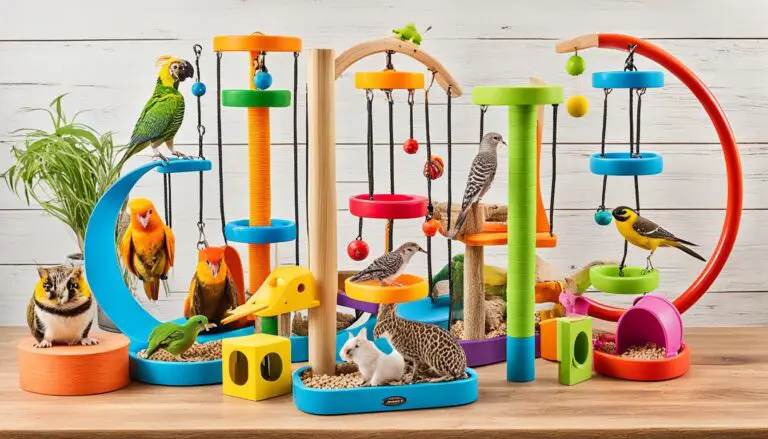
![Optimal Exotic Pet Housing Temperature [Quick Guide]](https://exoticpetsplace.com/wp-content/uploads/2024/03/Exotic-pet-housing-temperature-768x439.jpg)
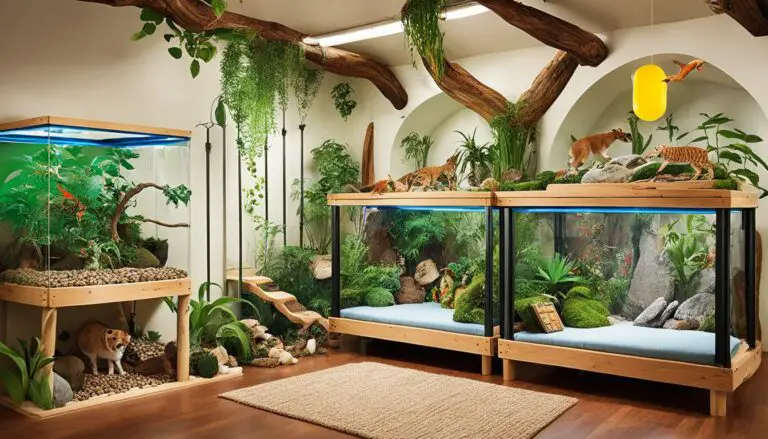
![How to Create a Safe Outdoor Space for Your Exotic Pet [Guide]](https://exoticpetsplace.com/wp-content/uploads/2023/06/How-to-Create-a-Safe-Outdoor-Space-for-Your-Exotic-Pet-Guide-wood-house-with-a-porch-768x512.jpg)
